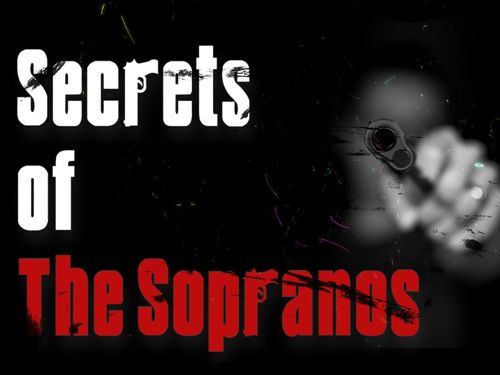The inspiration and creative process behind The Sopranos
Aug 09, 2021 · 2 mins read
0
Share

During lockdown, I revisited and devoured The Sopranos (along with mountains of pasta it inspired). Spanning seven seasons and often lauded as the greatest TV show ever, I wanted to learn more so delved into podcasts, documentaries and articles on the show.
Save
Share
Initially, the title The Sopranos confused people. When Jamie Lynn-Sigler (Meadow Soprano) arrived for an audition she thought it was for a musical. The now iconic logo that features a gun as the letter ‘R’ was created to offset this misconception.
Save
Share
Creator David Chase based Dr. Melfi on his therapist. She even became involved in the characters' psychological development, writing an analytical breakdown of the Soprano family. “Strangely, these fictional characters behaved in the way she predicted,” Chase said.
Save
Share
Chase had a specific rule for cinematographers when shooting in Dr Melfi’s office: do not move the camera. Having the camera angles swap between Tony Soprano and Dr Melfi captured the essence of a real therapy session, with the camera mimicking a question and response.
Save
Share
Melfi wasn’t the only character based on a woman from Chase’s personal life. The toxic and strained relationship between Tony and his mother, Livia, is based on the relationship with his own mother.
Save
Share
The script was sacrilege. Improvising on set was not allowed and not a single word could be changed without direct permission from Chase.
Save
Share
Actors were intensely committed. Steve Van Zandt wrote an entire biography for his character Silvio Dante, while James Gandolfini put stones in his shoes during filming. He would use the pain and discomfort from walking to add to Tony’s tense, angry, pained persona.
Save
Share
The closing, and divisive, diner scene in the show's finale took weeks to perfect. 18 slightly different versions of the scene were shot.
Save
Share
“Ambiguity was very important to me and network television at that time was nothing but a world of certainties. The Sopranos was ambiguous to the point where, to this day, I’m not really sure whether it was a drama or a comedy.” - David Chase.
Save
Share
0